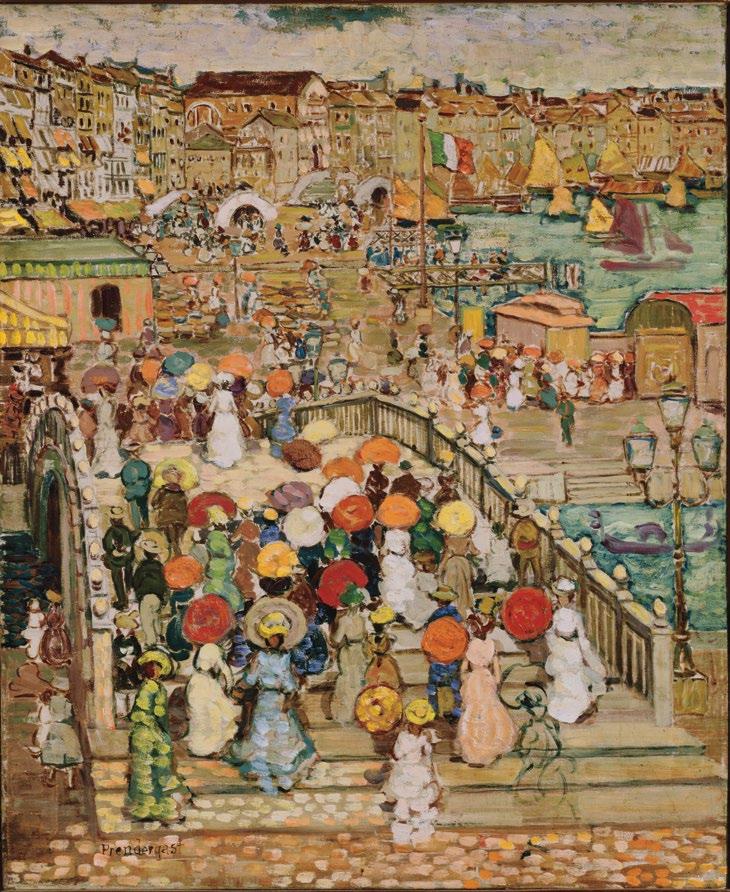Favorite Subject
Key: Each ✓stands for 1 vote.
1. What is the title of this graph?
2. How many subjects are on the graph?
3. Which subject has the most votes?
4. Which subject has the fewest votes?
2 ▸ M1 ▸ TA ▸ Lesson 1 EUREKA MATH2 New York Next Gen 6 LESSON © Great Minds PBC
✓ ✓ ✓ ✓ ✓ ✓ ✓ ✓ ✓ ✓ ✓ ✓ ✓ ✓ ✓ ✓ ✓ ✓ ✓ ✓ ✓ ✓ ✓ ✓ ✓
Math Writing Science Reading
© Great Minds PBC 7 EUREKA MATH2 New York Next Gen 2 ▸ M1 ▸ TA ▸ Lesson 1 Name 1
Pets We Like Dogs 9 Cats 8 Fish 3 Lizards 4
1. Make a picture graph.
Key:
Number of Books
Key: Each ✓stands for 1 book.
2. What is the title of this graph?
3. How many people are there?
4. Who has the most books?
5. Who has the fewest books?
2 ▸ M1 ▸ TA ▸ Lesson 1 EUREKA MATH2 New York Next Gen 8 PROBLEM SET © Great Minds PBC
✓ ✓ ✓ ✓ ✓ ✓ ✓ ✓ ✓ ✓ ✓ ✓ ✓ ✓ ✓ ✓ ✓ ✓ ✓ ✓ ✓ ✓ ✓ ✓ ✓ ✓ ✓ ✓ ✓ ✓ ✓ ✓
Hope Kate Kevin Ming
Key:
9 EUREKA MATH2 New York Next Gen 2 ▸ M1 ▸ TA ▸ Lesson 1 Name © Great Minds PBC 1 Make a picture graph. Animals We Like Dogs 7 Cats 8 Rabbits 5 Fish 4
© Great Minds PBC 11 Name EUREKA MATH2 New York Next Gen 2 ▸ M1 ▸ TA ▸ Lesson 2 2 0
Our Birthdays
1. What is the title of this graph?
2. How many seasons are there?
3. Which season has the most birthdays?
4. Which season has the fewest birthdays?
12 LESSON 2 ▸ M1 ▸ TA ▸ Lesson 2 EUREKA MATH2 New York Next Gen © Great Minds PBC Fall Winter Summer Spring
2 3 4 5 6 7 8 9 10 11 1 0
© Great Minds PBC 13 EUREKA MATH2 New York Next Gen 2 ▸ M1 ▸ TA ▸ Lesson 2 Name 2 1. Make a bar graph. Fruit We Like Apples Bananas Grapes Pears 5 8 7 4 0
Sports We Like
2. What is the title of this graph?
3. How many sports are on the graph?
4. Which sport got the most votes?
5. Which sport got the fewest votes?
2 ▸ M1 ▸ TA ▸ Lesson 2 EUREKA MATH2 New York Next Gen 14 PROBLEM SET © Great Minds PBC Soccer Baseball Basketball
Swimming
2 3 4 5 6 7 8 9 10 11 1 0
15 EUREKA MATH2 New York Next Gen 2 ▸ M1 ▸ TA ▸ Lesson 2 Name © Great Minds PBC 2 Make a bar graph. Games We Like Tag 4 Kickball 7 Jump Rope 10 Hide and Seek 3 0
1. Which color do we have the most of?
2. Which color do we have the fewest of?
3. How many red counters and green counters are there?
© Great Minds PBC 17 EUREKA MATH2 New York Next Gen 2 ▸ M1 ▸ TA ▸ Lesson 3
3
Name
0
4. How many yellow counters and blue counters are there?
5. How many counters are there in all?
6. Take away the red counters. What is the new total?
7. Take away 1 counter of each color. What is the new total?
2 ▸ M1 ▸ TA ▸ Lesson 3 EUREKA MATH2 New York Next Gen 18 LESSON © Great Minds PBC
Balloons
Yellow
Red
Green Blue
1. How many balloons are there in all? Write a number sentence
2. 6 red balloons pop.
How many red balloons are there now?
Now how many balloons are there in all?
19 EUREKA MATH2 New York Next Gen 2 ▸ M1 ▸ TA ▸ Lesson 3
© Great Minds PBC 3 0
Name
2 3 4 5 6 7 8 9 10 12 11 1
Name
Prizes
Cars
Pinwheels
Balls
Teddy Bears
1. How many prizes are there in all?
Write a number sentence.
2. Take away 2 of each prize.
What is the new total?
21 EUREKA MATH2 New York Next Gen 2 ▸ M1 ▸ TA ▸ Lesson 3
© Great Minds PBC 3 0
2 3 4 5 6 7 8 9 10 11 1
Farm Animals
2. How many more pigs than hens are on the farm?
3. How many fewer cows than goats are on the farm?
23 EUREKA MATH2 New York Next Gen 2 ▸ M1 ▸ TA ▸ Lesson 4 Name © Great Minds PBC 4
1. Make a bar graph.
Goats Cows Pigs Hens 13 7 10 8 0
Name
Bugs at the Park
Butterflies
Worms
Bees
Grasshoppers
1. How many more worms than bees are at the park?
2. How many more bees than grasshoppers are at the park?
3. How many fewer butterflies than bees are at the park?
25 EUREKA MATH2 New York Next Gen 2 ▸ M1 ▸ TA ▸ Lesson 4
© Great Minds PBC 4
1 2 3 4 5 6 7 8 9 10 11 12 13 14 0
Animals at the Beach
Seagulls Starfish Crabs Clams
4. How many more starfish than clams are at the beach?
5. How many fewer seagulls than crabs are at the beach?
2 ▸ M1 ▸ TA ▸ Lesson 4 EUREKA MATH2 New York Next Gen © Great Minds PBC 26 PROBLEM SET 0 1 2 3 4 5 6 7 8 9 10 11 12 13 14 15
Name
1. Make a bar graph.
Reptiles at the Zoo
2. How many more snakes than lizards are at the zoo?
3. How many fewer turtles than lizards are at the zoo?
EUREKA MATH2 New York Next Gen 2 ▸ M1 ▸ TA 27
© Great Minds PBC A
Snakes Lizards Turtles Alligators 13 11 7 8 0
Name
Use a centimeter cube to find the length.
1. The crayon is centimeter cubes long.
2. The clothespin is centimeter cubes long.
3. The marker is centimeter cubes long.
© Great Minds PBC 29 EUREKA MATH2 New York Next Gen 2 ▸ M1 ▸ TB ▸ Lesson 5
5
Pick an object. Use the line as an endpoint.
Measure the object with a centimeter cube.
The is centimeter cubes long.
The is centimeter cubes long.
The is centimeter cubes long.
2 ▸ M1 ▸ TB ▸ Lesson 5 EUREKA MATH2 New York Next Gen 30 PROBLEM SET © Great Minds PBC
4.
5.
6.
Name
Matt uses a centimeter cube to measure.
He thinks the pencil is 12 centimeters long.
Is Matt correct? Write how you know.
31 EUREKA MATH2 New York Next Gen 2 ▸ M1 ▸ TB ▸ Lesson 5
© Great Minds PBC 5
Name
Objects that are shorter than 10 cm:
1. The is cm long.
2. The is cm long.
3. The is cm long.
4. The is cm long.
5. The is cm long.
33 EUREKA MATH2 New York Next Gen 2 ▸ M1 ▸ TB ▸ Lesson 6
© Great Minds PBC 6
Name
Use your 10 cm ruler to measure. Fill in the blanks.
cm long.
© Great Minds PBC 35 EUREKA MATH2 New York Next Gen 2 ▸ M1 ▸ TB ▸ Lesson 6
6
1. The fish is
2. The turtle is cm long.
2 ▸ M1 ▸ TB ▸ Lesson 6 EUREKA MATH2 New York Next Gen 36 PROBLEM SET © Great Minds PBC
3. The pen is cm long.
4. The scissors are cm long.
37 EUREKA MATH2 New York Next Gen 2 ▸ M1 ▸ TB ▸ Lesson 6
© Great Minds PBC 6
Name
1. Circle the 10 cm ruler.
2. Write why some are not 10 cm rulers.
Name
Objects that are longer than 10 cm:
1. The is cm long.
2. The is cm long.
3. The is cm long.
is cm long.
39 EUREKA MATH2 New York Next Gen 2 ▸ M1 ▸ TB ▸ Lesson 7
© Great Minds PBC 7
4. The
5. The is cm long.
Name
Each friend measures two ways.
1. Kate’s lizard is 27 cm long. She uses 1 cm cubes.
She uses 10 cm rulers and 1 cm cubes.
2. Alex’s snake is 34 cm long.
He uses 1 cm cubes.
He uses 10 cm rulers and 1 cm cubes.
3. Nick’s cat is 40 cm long.
He uses 10 cm rulers and 1 cm cubes.
He uses 1 cm cubes.
© Great Minds PBC 41 EUREKA MATH2 New York Next Gen 2 ▸ M1 ▸ TB ▸ Lesson 7
7
4. Jade measures her belt . She uses five 10 cm rulers and four 1 cm cubes.
Jade thinks her belt is 45 cm long.
Is she correct?
Show how you know.
2 ▸ M1 ▸ TB ▸ Lesson 7 EUREKA MATH2 New York Next Gen 42 PROBLEM SET © Great Minds PBC
Name
Each friend measures two ways.
1. Kevin’s boot is 23 cm long. He uses 1 cm cubes.
He uses 10 cm rulers and 1 cm cubes.
2. Hope’s backpack is 37 cm long.
She uses 10 cm rulers and 1 cm cubes.
She uses 1 cm cubes.
43 EUREKA MATH2 New York Next Gen 2 ▸ M1 ▸ TB ▸ Lesson 7
© Great Minds PBC 7
Name
1. Use these tools to measure.
Tools
meter stick 10 cm ruler 1 cm cube
Object
Length
Tools
© Great Minds PBC 45 EUREKA MATH2 New York Next Gen 2 ▸ M1 ▸ TB ▸ Lesson 8
8
Circle the tool you would use to measure each object.
2. The length of a bus
1 cm cube 10 cm ruler meter stick meter tape
3. The length of a nail
1 cm cube 10 cm ruler meter stick meter tape
4. The length of a spoon
1 cm cube 10 cm ruler meter stick meter tape
5. The length around a globe
1 cm cube 10 cm ruler meter stick meter tape
2 ▸ M1 ▸ TB ▸ Lesson 8 EUREKA MATH2 New York Next Gen 46 PROBLEM SET © Great Minds PBC
Name
Pam wants to make a meter stick. She has seven 10 cm rulers.
How many more 10 cm rulers does Pam need?
Show how you know.
Pam needs more 10 cm rulers to make a meter stick.
47 EUREKA MATH2 New York Next Gen 2 ▸ M1 ▸ TB ▸ Lesson 8
© Great Minds PBC 8
Name
1. Beth and Kate measure the same desk.
Beth says the desk is 1 m 2 cm. Kate says it is 102 cm.
Who is correct?
Metric Units
100 cm (1 m) 10 cm 1 cm
© Great Minds PBC 49 EUREKA MATH2 New York Next Gen 2 ▸ M1 ▸ TB ▸ Lesson 9
9
2. Nate needs 1 m 25 cm of ribbon for an art project.
The store only sells ribbon in centimeters. How much ribbon should Nate buy?
Metric Units
100 cm (1 m) 10 cm 1 cm
50 © Great Minds PBC 2 ▸ M1 ▸ TB ▸ Lesson 9 EUREKA MATH2 New York Next Gen
LESSON
Name
1. Circle the true statements.
1 cm is the same length as 1 m.
1 m is the same length as 100 cm.
300 cm is the same length as 3 m.
2 cm is the same length as 200 m.
135 cm is the same length as 1 m 35 cm.
© Great Minds PBC 51 EUREKA MATH2 New York Next Gen 2 ▸ M1 ▸ TB ▸ Lesson 9
9
2. The bed is 189 cm long.
How can you make 189 cm with these units?
100 cm (1 m) 10 cm 1 cm
How can you make 189 cm with these units?
100 cm (1 m) 1 cm
How can you make 189 cm with these units?
10 cm 1 cm
2 ▸ M1 ▸ TB ▸ Lesson 9 EUREKA MATH2 New York Next Gen 52 PROBLEM SET © Great Minds PBC
Name
Use your 10 cm ruler to measure.
1. The dog bone is cm long. Circle the tool you would use to measure each object.
2. The length of a truck
1 cm cube 10 cm ruler meter stick
3. The length of a book
1 cm cube 10 cm ruler meter stick
EUREKA MATH2 New York Next Gen 2 ▸ M1 ▸ TB 53
© Great Minds PBC B
Name
1. Measure with a friend.
Me
palms make 1 cubit .
My Friend
palms make 1 cubit .
digits make 1 palm .
digits make 1 palm .
2. How long is the desk? cubits palms
55 EUREKA MATH2 New York Next Gen 2 ▸ M1 ▸ TB ▸ Lesson 10
© Great Minds PBC 10
Name
Measure with cubits Cubit . Then measure with palms . Object Cubits Cubit Palms
© Great Minds PBC 57 EUREKA MATH2 New York Next Gen 2 ▸ M1 ▸ TB ▸ Lesson 10
10
1. Bookshelf
2. Desk
3. Window
4. Door
5.
6.
7. Circle the true statement.
It will take more cubits Cubit than palms to measure the length of a car. It will take more palms than cubits Cubit to measure the length of a car.
8. Write how you know.
2 ▸ M1 ▸ TB ▸ Lesson 10 EUREKA MATH2 New York Next Gen 58 PROBLEM SET © Great Minds PBC
Name
1. How long is the rug in cubits Cubit ? cubits
2. How long is the rug in palms ? palms
3. Circle the true statement.
It takes more cubits Cubit than palms to measure the length of the rug. It takes more palms than cubits Cubit to measure the length of the rug.
59 EUREKA MATH2 New York Next Gen 2 ▸ M1 ▸ TB ▸ Lesson 10
© Great Minds PBC 10
Name Estimate the length of each pencil . Then measure.
1.
2.
Estimate: cm Measurement: cm
Estimate: cm Measurement: cm
Estimate: cm Measurement: cm
© Great Minds PBC 61 EUREKA MATH2 New York Next Gen 2 ▸ M1 ▸ TC ▸ Lesson 11 11
3.
4. Estimate the length of each object. Then measure.
Object Estimate Measurement
A marker
An eraser
A crayon
5. Pick one of the objects you measured.
Show the difference in length between your estimate and the measurement.
The difference in length is cm.
2 ▸ M1 ▸ TC ▸ Lesson 11 EUREKA MATH2 New York Next Gen 62 PROBLEM SET © Great Minds PBC
Name About how long is each object? Circle your estimate.
1. A sneaker 2 cm 20 cm
2. A pen 1 cm 10 cm
3. A paper clip 4 cm 40 cm
4. Ming estimates the length of his flashlight is about 15 cm.
He measures and it is 11 cm.
Show the difference in length between Ming’s estimate and the measurement.
The difference in length is cm.
63 EUREKA MATH2 New York Next Gen 2 ▸ M1 ▸ TC ▸ Lesson 11 © Great Minds PBC 11
Name
1. Measure the object. Fill in the blank.
I estimate it is 10 cm long.
Measurement: cm
2. Show the difference in length two ways. Write an equation for each way.
The difference in length is cm.
© Great Minds PBC 65 EUREKA MATH2 New York Next Gen 2 ▸ M1 ▸ TC ▸ Lesson 12
12
3. Measure the object. Fill in the blank.
I estimate it is 10 cm long.
Measurement: cm
4. Show the difference in length two ways. Write an equation for each way.
The difference in length is cm.
2 ▸ M1 ▸ TC ▸ Lesson 12 EUREKA MATH2 New York Next Gen © Great Minds PBC 66 PROBLEM SET
5. Pick two objects to measure. Show the difference in length. Write an equation.
The difference in length is cm.
EUREKA MATH2 New York Next Gen 2 ▸ M1 ▸ TC ▸ Lesson 12 67 PROBLEM SET © Great Minds PBC
Name Measure the shell. Fill in the blank.
I estimate the shell is 5 cm long.
Measurement: cm
Show the difference in length two ways. Write an equation for each way.
The difference in length is cm.
69 EUREKA MATH2 New York Next Gen 2 ▸ M1 ▸ TC ▸ Lesson 12 © Great Minds PBC 12
Name
Friend’s Name:
1. Estimate your friend’s height. Then measure it. My Friend’s Height
Estimate
Measurement
2. How many of each did you use?
meter sticks 10 cm rulers
centimeter cubes
71 EUREKA MATH2 New York Next Gen 2 ▸ M1 ▸ TC ▸ Lesson 13 © Great Minds PBC
13
Name
1. How tall is each friend?
Friend
Height
Height (in centimeters)
1 meter stick
2 10 cm rulers
3 centimeter cubes
Jack
Hope
1 meter stick
4 10 cm rulers
Jill
1 meter stick
3 centimeter cubes
© Great Minds PBC 73 EUREKA MATH2 New York Next Gen 2 ▸ M1 ▸ TC ▸ Lesson 13
13
Tam
9 10 cm rulers
7 centimeter cubes
13 10 cm rulers
Lan
2. Ling is 118 cm tall. Write all the ways you can show 118 cm. Meter Sticks 10 cm Rulers Centimeter Cubes
2 ▸ M1 ▸ TC ▸ Lesson 13 EUREKA MATH2 New York Next Gen 74 PROBLEM SET © Great Minds PBC
Name
1. Pam is 142 cm tall. How many of each do you need? meter sticks 10 cm rulers centimeter cubes
2. Write another way to measure Pam’s height. meter sticks 10 cm rulers centimeter cubes
75 EUREKA MATH2 New York Next Gen 2 ▸ M1 ▸ TC ▸ Lesson 13 © Great Minds PBC 13
Name
1. Jade and Beth have different heights.
Jade is 129 cm tall.
Beth is 126 cm tall.
Show the difference in height two ways. Write an equation for each way.
The difference in height is .
© Great Minds PBC 77 EUREKA MATH2 New York Next Gen 2 ▸ M1 ▸ TC ▸ Lesson 14
14
2. Nate and Alex have different heights.
Nate is 158 cm tall.
Alex is 152 cm tall.
Show the difference in height two ways. Write an equation for each way.
The difference in height is .
2 ▸ M1 ▸ TC ▸ Lesson 14 EUREKA MATH2 New York Next Gen © Great Minds PBC 78 PROBLEM SET
Name
Measure the length.
1. The fork is cm.
2. The spoon is cm.
3. What is the difference in length? Show how you know.
The difference in length is cm.
EUREKA MATH2 New York Next Gen 2 ▸ M1 ▸ TC 79
© Great Minds PBC C
81 EUREKA MATH2 New York Next Gen 2 ▸ M1 ▸ TD ▸ Lesson 15 ▸ Number Line © Great Minds PBC 40 50 60
© Great Minds PBC 83 Name EUREKA MATH2 New York Next Gen 2 ▸ M1 ▸ TD ▸ Lesson 15 15
Write the numbers on the number line. 50 45 49 58 40 60 Use the number line to add.
55 + 8 = 50 60 70
1.
2.
84 PROBLEM SET © Great Minds PBC 2 ▸ M1 ▸ TD ▸ Lesson 15 EUREKA MATH2 New York Next Gen 3. 29 + 5 = 4. 38 + 7 = 20 30 40 30 40 50
85 EUREKA MATH2 New York Next Gen 2 ▸ M1 ▸ TD ▸ Lesson 15 © Great Minds PBC Name 15 Use the number line to add. 79 + 4 = 70 90 80
© Great Minds PBC 87 Name EUREKA MATH2 New York Next Gen 2 ▸ M1 ▸ TD ▸ Lesson 16 16 Use the number line to subtract. 1. 68 – 8 = 50 60 70 2. 68 – 9 = 50 60 70
88 PROBLEM SET © Great Minds PBC 2 ▸ M1 ▸ TD ▸ Lesson 16 EUREKA MATH2 New York Next Gen 3. 75 – 6 = 60 70 80 4. 77 – 9 = 60 70 80
89 Name © Great Minds PBC 16 EUREKA MATH2 New York Next Gen 2 ▸ M1 ▸ TD ▸ Lesson 16 Use the number line to subtract. 63 – 8 = 50 60 70
1. How much farther does the red plane go than the blue plane?
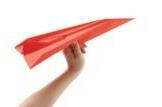
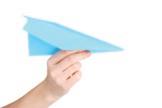
79 cm
Write an equation.
90 cm
The red plane goes farther than the blue plane.
© Great Minds PBC 91 Name EUREKA MATH2 New York Next Gen 2 ▸ M1 ▸ TD ▸ Lesson 17 17
69 70 71 72 73 74 75 76 77 78 79 80 81 82 83 84 85 86 87 88 89 90 91 92 93 94 95 96 97 98 99 100 1 0 2 3 4 5 6 7 8 9 10 11 12
2. How much farther does the big frog jump than the little frog?
141 cm
128 cm
Write an equation.
The big frog jumps farther than the little frog.
92 PROBLEM SET © Great Minds PBC 2 ▸ M1 ▸ TD ▸ Lesson 17 EUREKA MATH2 New York Next Gen
Name
Jill thinks the yellow pencil is 17 cm longer than the blue crayon. 7 cm 10 cm
Is Jill correct? Write how you know.
93 EUREKA MATH2 New York Next Gen 2 ▸ M1 ▸ TD ▸ Lesson 17 © Great Minds PBC
17
Name
Read
Tam rides 42 miles on the bus. Lee rides 18 miles on the bus.
How many more miles does Tam ride than Lee?
Draw
Write
Tam rides more miles than Lee.
© Great Minds PBC 95
EUREKA MATH2 New York Next Gen 2 ▸ M1 ▸ TD ▸ Lesson 18 18
Read
Ling’s plant is 64 cm tall. Alex’s plant is 39 cm tall.
How much taller is Ling’s plant than Alex’s plant?
Draw Write
Ling’s plant is taller than Alex’s plant.
96 PROBLEM SET © Great Minds PBC 2 ▸ M1 ▸ TD ▸ Lesson 18 EUREKA MATH2 New York Next Gen
Name
Read The necklace is 35 cm long. The bracelet is 19 cm long.
How much longer is the necklace than the bracelet ?
Draw Write
The necklace is longer than the bracelet.
97
© Great Minds PBC EUREKA MATH2 New York Next Gen 2 ▸ M1 ▸ TD ▸ Lesson 18 18
Name
Read
Sal jumps rope 65 times. Hope jumps rope 40 times.
How many more times does Sal jump rope than Hope?
Draw
Write
Sal jumps rope more times than Hope.
© Great Minds PBC 99
EUREKA MATH2 New York Next Gen 2 ▸ M1 ▸ TD ▸ Lesson 19 19
Read
Kate has 40 pennies. Jack has 27 pennies .
How many fewer pennies does Jack have than Kate?




Draw
Write
Jack has fewer pennies than Kate.
100 PROBLEM SET © Great Minds PBC 2 ▸ M1 ▸ TD ▸ Lesson 19 EUREKA MATH2 New York Next Gen
EUREKA MATH2 New York Next Gen 2 ▸ M1 ▸ TD © Great Minds PBC 101 Name D
65 – 6 = 50 60 70
1.
Use the number line to subtract.
2. Read
Lan’s plant is 36 cm tall. Tim’s plant is 41 cm tall. How much taller is Tim’s plant than Lan’s plant?
Draw Write
Tim’s plant is taller than Lan’s plant.
2 ▸ M1 ▸ TD EUREKA MATH2 New York Next Gen 102 TOPIC TICKET © Great Minds PBC
Name
Draw hundreds, tens, and ones.
© Great Minds PBC 103 EUREKA MATH2 New York Next Gen 2 ▸ M1 ▸ TE ▸ Lesson 20 20
1.
2.
3.
4.
Fill in the blanks to match the picture.
hundred tens ones
2 ▸ M1 ▸ TE ▸ Lesson 20 EUREKA MATH2 New York Next Gen 104 PROBLEM SET © Great Minds PBC
hundreds tens
hundreds ten
one
ones 5. 6. 7.
Name
Use the units to fill in the blanks.
ten thousand hundred
10 ones = 1
10 tens = 1
10 hundreds = 1
105 EUREKA MATH2 New York Next Gen 2 ▸ M1 ▸ TE ▸ Lesson 20 © Great Minds PBC 20
© Great Minds PBC 107 EUREKA MATH2 New York Next Gen 2 ▸ M1 ▸ TE ▸ Lesson 21 21
1. Draw units to count from 28 to 100.
28 154 Name
2. Draw units to count from 154 to 200.
3. Draw units to count from 387 to 500.
4. Draw units to count from 95 to 320.
2 ▸ M1 ▸ TE ▸ Lesson 21 EUREKA MATH2 New York Next Gen 108 PROBLEM SET © Great Minds PBC
Name
Draw units to count from 376 to 600.
109 EUREKA MATH2 New York Next Gen 2 ▸ M1 ▸ TE ▸ Lesson 21 © Great Minds PBC 21
Name
Read
Ming biked 64 miles.
He wants to bike 100 miles.
How many more miles should Ming bike?
Draw
Write
Ming should bike more miles.
111 EUREKA MATH2 New York Next Gen 2 ▸ M1 ▸ TE ▸ Lesson 22 © Great Minds PBC 22
Name
1.
© Great Minds PBC 113 EUREKA MATH2 New York Next Gen 2 ▸ M1 ▸ TE ▸ Lesson 22 22
Draw units to count from 428 to 630.
2. Read
Tam made 73 cupcakes. She needs 120 cupcakes.
How many more cupcakes does Tam need?
Draw
Write
Tam needs more cupcakes.
2 ▸ M1 ▸ TE ▸ Lesson 22 EUREKA MATH2 New York Next Gen 114 PROBLEM SET © Great Minds PBC
EUREKA MATH2 New York Next Gen 2 ▸ M1 ▸ TE 115 © Great Minds PBC E
136
1. Count from 136 to 400. Draw ones, tens, and hundreds.
Name
Name Partner
What did you count?
Your estimate: Show how you counted.
How many did you count in all?
Write a number sentence to match how you counted.
© Great Minds PBC 117 EUREKA MATH2 New York Next Gen 2 ▸ M1 ▸ TE ▸ Lesson 23 23
Self-Reflection
Write one thing that worked well. Why did it work?
2 ▸ M1 ▸ TE ▸ Lesson 23 EUREKA MATH2 New York Next Gen 118 LESSON © Great Minds PBC
hundreds tens ones
EUREKA MATH2 New York Next Gen 2 ▸ M1 ▸ TF ▸ Lesson 24 ▸ Place Value Recording Sheet 119 © Great Minds PBC
Name
1. Count from 47 to 200.
hundreds tens ones
2. Count from 188 to 510.
hundreds tens ones
© Great Minds PBC 121 EUREKA MATH2 New York Next Gen 2 ▸ M1 ▸ TF ▸ Lesson 24
24
3. Count from 389 to 801.
hundreds tens ones
4. Count from 170 to 430.
hundreds tens ones
2 ▸ M1 ▸ TF ▸ Lesson 24 EUREKA MATH2 New York Next Gen 122 PROBLEM SET © Great Minds PBC
Name Count from 668 to 900.
hundreds tens ones
123 EUREKA MATH2 New York Next Gen 2 ▸ M1 ▸ TF ▸ Lesson 24 © Great Minds PBC 24
EUREKA MATH2 New York Next Gen 2 ▸ M1 ▸ TF ▸ Lesson 25 ▸ Tens and Ones 125 © Great Minds PBC tens ones
Name
Show the hundreds, tens, and ones.
Then write the unit form.
1. 416
416
Unit form: hundreds ten ones
2. 641
Unit form:
© Great Minds PBC 127 EUREKA MATH2 New York Next Gen 2 ▸ M1 ▸ TF ▸ Lesson 25
25
3. Jill has $250 in $100 and $10 bills. How many $100 and $10 bills could Jill have?
Show one way.
$100 bills
$10 bills
2 ▸ M1 ▸ TF ▸ Lesson 25 EUREKA MATH2 New York Next Gen © Great Minds PBC 128 PROBLEM SET
4. Matt has $250 in $10 bills. How many $10 bills does Matt have?
Show how you know.
Matt has $10 bills.
EUREKA MATH2 New York Next Gen 2 ▸ M1 ▸ TF ▸ Lesson 25 129 PROBLEM SET © Great Minds PBC
1. Show the hundreds, tens, and ones.
567
2. Write 905 in unit form.
131 EUREKA MATH2 New York Next Gen 2 ▸ M1 ▸ TF ▸ Lesson 25
©
Minds PBC 25
Name
Great
EUREKA MATH2 New York Next Gen 2 ▸ M1 ▸ TF ▸ Lesson 26 ▸ Hundreds, Tens, and Ones 133 © Great Minds PBC
on es
hundreds tens
Name
Write in expanded form.
1. 527 = 752
2. 201 = 210
3. 507 = 750
© Great Minds PBC 135 EUREKA MATH2 New York Next Gen 2 ▸ M1 ▸ TF ▸ Lesson 26
26
=
=
=
Write in standard form.
4. 200 + 50 + 7 = 50 + 7 + 200 =
5. 1 + 200 + 30 = 100 + 3 + 20 =
6. 700 + 5 = 70 + 500 =
2 ▸ M1 ▸ TF ▸ Lesson 26 EUREKA MATH2 New York Next Gen 136 PROBLEM SET © Great Minds PBC
1. Write in standard form.
2. Write in expanded form.
137 EUREKA MATH2 New York Next Gen 2 ▸ M1 ▸ TF ▸ Lesson 26
© Great Minds PBC 26
Name
10 + 10 + 1 + 1 + 100 + 100 + 100 = 400 + 70 + 6 = 9 + 700 =
435
=
= 340
© Great Minds PBC 139 EUREKA MATH2 New York Next Gen 2 ▸ M1 ▸ TF ▸ Lesson 27 ▸ Sprint ▸ Count by Ones, Tens, and Hundreds
the unknown number.
2, 3, 4,
12, 13, 14,
20, 30, 40,
120, 130, 140,
Sprint Write
1.
2.
3.
4.
Number Correct:
Write the unknown number. 1.
A2 ▸ M1 ▸ TF ▸ Lesson 27 ▸ Sprint ▸ Count by Ones, Tens, and Hundreds EUREKA MATH2 New York Next Gen © Great Minds PBC 140
0, 1, 2,
10, 11, 12, 3. 110, 111, 112, 4. 210, 211, 212, 5. 4, 5, 6, 6. 14, 15, 16, 7. 114, 115, 116, 8. 214, 215, 216, 9. 0, 10, 20, 10. 100, 110, 120, 11. 200, 210, 220, 12. 300, 310, 320, 13. 40, 50, 60, 14. 140, 150, 160, 15. 240, 250, 260, 16. 1, 2, 3, 17. 10, 20, 30, 18. 11, 21, 31, 19. 111, 121, 131, 20. 5, 6, 7, 21. 50, 60, 70, 22. 51, 61, 71, 23. 151, 161, 171, 24. 2, 3, 4, 25. 20, 30, 40, 26. 200, 300, 400, 27. 3, 4, 5, 28. 30, 40, 50, 29. 300, 400, 500, 30. 700, 800, 900,
2.
Number Correct:
Write the unknown number. 1.
B2 ▸ M1 ▸ TF ▸ Lesson 27 ▸ Sprint ▸ Count by Ones, Tens, and Hundreds EUREKA MATH2 New York Next Gen 142 © Great Minds PBC
1, 2, 3,
11, 12, 13, 3. 111, 112, 113, 4. 211, 212, 213, 5. 5, 6, 7, 6. 15, 16, 17, 7. 115, 116, 117, 8. 215, 216, 217, 9. 10, 20, 30, 10. 110, 120, 130, 11. 210, 220, 230, 12. 310, 320, 330, 13. 50, 60, 70, 14. 150, 160, 170, 15. 250, 260, 270, 16. 2, 3, 4, 17. 20, 30, 40, 18. 21, 31, 41, 19. 121, 131, 141, 20. 6, 7, 8, 21. 60, 70, 80, 22. 61, 71, 81, 23. 161, 171, 181, 24. 3, 4, 5, 25. 30, 40, 50, 26. 300, 400, 500, 27. 4, 5, 6, 28. 40, 50, 60, 29. 400, 500, 600, 30. 700, 800, 900,
2.
EUREKA MATH2 New York Next Gen 2 ▸ M1 ▸ TF ▸ Lesson 27 ▸ Numbers in Word Form 143 © Great Minds PBC 1 one 11 eleven 10 ten 2 two 12 twelve 20 twenty 3 three 13 thirteen 30 thirty 4 four 14 fourteen 40 forty 5 five 15 fifteen 50 fifty 6 six 16 sixteen 60 sixty 7 seven 17 seventeen 70 seventy 8 eight 18 eighteen 80 eighty 9 nine 19 nineteen 90 ninety 10 ten 20 twenty 100 one hundred
1. Write the number in word form. Use the word bank.
fifteen three hundred eighteen eight hundred four two hundred forty twelve three hundred eighty-five
© Great Minds PBC 145 EUREKA MATH2 New York Next Gen 2 ▸ M1 ▸ TF ▸ Lesson 27
385 12 318 240 804 15
27
Name
2. Write 549 in these forms.
Word form:
Unit form:
Expanded form:
3. Write 612 in these forms.
Word form:
Unit form:
Expanded form:
2 ▸ M1 ▸ TF ▸ Lesson 27 EUREKA MATH2 New York Next Gen 146 PROBLEM SET © Great Minds PBC
Write the number in these forms.
1. Standard form:
2. Word form:
3. Unit form:
4. Expanded form:
EUREKA MATH2 New York Next Gen 2 ▸ M1 ▸ TF 147 © Great Minds PBC
F
Name
EUREKA MATH2 New York Next Gen 2 ▸ M1 ▸ TG ▸ Lesson 28 ▸ Unlabeled Chart 149 © Great Minds PBC


















EUREKA MATH2 New York Next Gen 2 ▸ M1 ▸ TG ▸ Lesson 28 ▸ Money Tool Kit © Great Minds PBC 151


















EUREKA MATH2 New York Next Gen 2 ▸ M1 ▸ TG ▸ Lesson 28 ▸ Money Tool Kit © Great Minds PBC 153

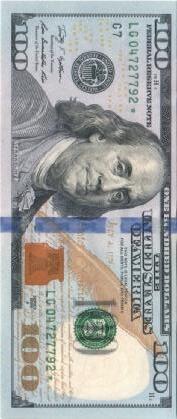
















EUREKA MATH2 New York Next Gen 2 ▸ M1 ▸ TG ▸ Lesson 28 ▸ Money Tool Kit © Great Minds PBC 155






EUREKA MATH2 New York Next Gen 2 ▸ M1 ▸ TG ▸ Lesson 28 ▸ Money Tool Kit 157 © Great Minds PBC
Name
© Great Minds PBC 159 EUREKA MATH2 New York Next Gen 2 ▸ M1 ▸ TG ▸ Lesson 28
28
1. Draw bills for $240.
2. Draw bills for $203.
3. Draw bills for $243. Draw two ways.
2 ▸ M1 ▸ TG ▸ Lesson 28 EUREKA MATH2 New York Next Gen 160 PROBLEM SET © Great Minds PBC
1. Draw bills for 103 dollars. Draw two ways.
161 EUREKA MATH2 New York Next Gen 2 ▸ M1 ▸ TG ▸ Lesson 28
Minds PBC 28
Name © Great
EUREKA MATH2 New York Next Gen 2 ▸ M1 ▸ TG ▸ Lesson 29 ▸ Number Line 163 © Great Minds PBC 60 70 80
EUREKA MATH2 New York Next Gen 2 ▸ M1 ▸ TG ▸ Lesson 29 ▸ Unlabeled Chart 165 © Great Minds PBC
Name
Count by ones, tens, and hundreds.
1. 70 to 300
2. 300 to 450
© Great Minds PBC 167 EUREKA MATH2 New York Next Gen 2 ▸ M1 ▸ TG ▸ Lesson 29
29
2 ▸ M1 ▸ TG ▸ Lesson 29 EUREKA MATH2 New York Next Gen © Great Minds PBC 168 PROBLEM SET
3. 160 to 700
4. 68 to 200
EUREKA MATH2 New York Next Gen 2 ▸ M1 ▸ TG ▸ Lesson 29 © Great Minds PBC 169 PROBLEM SET
5. 200 to 84
6. 425 to 200
7. 982 to 739
2 ▸ M1 ▸ TG ▸ Lesson 29 EUREKA MATH2 New York Next Gen 170 PROBLEM SET © Great Minds PBC
Name
Count by ones, tens, and hundreds.
1. 280 to 435
2. 524 to 213
171 EUREKA MATH2 New York Next Gen 2 ▸ M1 ▸ TG ▸ Lesson 29
© Great Minds PBC 29
EUREKA MATH2 New York Next Gen 2 ▸ M1 ▸ TG ▸ Lesson 30 ▸ Number Line 173 © Great Minds PBC 60 70 80
Name
How many $10 bills make $1,000?
Show how you know.
Write a solution statement.
175 EUREKA MATH2 New York Next Gen 2 ▸ M1 ▸ TG ▸ Lesson 30 © Great Minds PBC 30
Name
1. How many more $100 bills make $1,000? Show how you know. more $100 bill makes $1,000.
© Great Minds PBC 177 EUREKA MATH2 New York Next Gen 2 ▸ M1 ▸ TG ▸ Lesson 30 30
$100
$100
$100
$100
$100
$100
$100
$100
$100
2. How many more $10 bills make $1,000? Show how you know. more $10 bills make $1,000.
2 ▸ M1 ▸ TG ▸ Lesson 30 EUREKA MATH2 New York Next Gen © Great Minds PBC 178 PROBLEM SET
$100
$100 $100 $100 $100 $100 $100 $100 $100
3. How many more $100 bills make $1,000? Show how you know. more $100 bills make $1,000.
EUREKA MATH2 New York Next Gen 2 ▸ M1 ▸ TG ▸ Lesson 30 © Great Minds PBC 179 PROBLEM SET
$100
$100 $100
$100
$100
4. How many more $10 bills make $1,000? Show how you know. more $10 bills make $1,000.
$100 $100 $100 $100 $100
2 ▸ M1 ▸ TG ▸ Lesson 30 EUREKA MATH2 New York Next Gen © Great Minds PBC 180 PROBLEM SET
Name
1. Draw bills for 354 dollars.
2. Count by ones, tens, and hundreds on the open number line.
657 to 900
EUREKA MATH2 New York Next Gen 2 ▸ M1 ▸ TG 181 © Great Minds PBC
G
EUREKA MATH2 New York Next Gen 2 ▸ M1 ▸ TH ▸ Lesson 31 ▸ Unlabeled Chart 183 © Great Minds PBC
Name
Jade has 5 place value disks.
What numbers can she make with all 5 disks?
185 EUREKA MATH2 New York Next Gen 2 ▸ M1 ▸ TH ▸ Lesson 31
© Great Minds PBC 31
© Great Minds PBC 187 EUREKA MATH2 New York Next Gen 2 ▸ M1 ▸ TH ▸ Lesson 31 Name 31 Write the number in expanded form. Then write it in standard form. 1. Expanded form: Standard form: 10 10 10 1 1 1 1 1 1 1
2 ▸ M1 ▸ TH ▸ Lesson 31 EUREKA MATH2 New York Next Gen © Great Minds PBC 188 PROBLEM SET 2. Expanded form: Standard form: 10 10 10 10 10 10 10 100 100 100
EUREKA MATH2 New York Next Gen 2 ▸ M1 ▸ TH ▸ Lesson 31 © Great Minds PBC 189 PROBLEM SET 3. Expanded form: Standard form: 10 10 10 10 10 10 10 10 10 1 1 1 100 100 100 100 100 100
2 ▸ M1 ▸ TH ▸ Lesson 31 EUREKA MATH2 New York Next Gen 190 PROBLEM SET © Great Minds PBC 4. Expanded form: Standard form: 10 10 10 10 10 10 1 1 1 1 1 1 1 1 1 100 100 100
Expanded form:
Standard form:
191 EUREKA MATH2 New York Next Gen 2 ▸ M1 ▸ TH ▸ Lesson 31 Name © Great Minds PBC 31
the number in expanded form. Then write it in standard form. 100 100 100 1 1 1 1 1
Write
EUREKA MATH2 New York Next Gen 2 ▸ M1 ▸ TH ▸ Lesson 32 ▸ Unlabeled Chart 193 © Great Minds PBC
Name
Read
Beth has 124 cookies. She can put 10 cookies in a pack.
1. How many packs can Beth fill?
2. How many more cookies does she need to fill a new pack?
Draw
Write
Beth can fill packs.
She needs more cookies.
195 EUREKA MATH2 New York Next Gen 2 ▸ M1 ▸ TH ▸ Lesson 32
© Great Minds PBC 32
How many more ones make a new ten? ones
What is the new number?
© Great Minds PBC 197 EUREKA MATH2 New York Next Gen 2 ▸ M1 ▸ TH ▸ Lesson 32
Name 1.
100 100 10 10 10 10 1 1 1 1 1 1 1 32
How many more tens make a new hundred? tens
What is the new number?
2 ▸ M1 ▸ TH ▸ Lesson 32 EUREKA MATH2 New York Next Gen © Great Minds PBC 198 PROBLEM SET 2.
100
10 10 10 10
100 100
100
100 100 100 100 1 1 1 1
How many more ones make a ten? ones
EUREKA MATH2 New York Next Gen 2 ▸ M1 ▸ TH ▸ Lesson 32 © Great Minds PBC 199 PROBLEM SET 3.
What is the new number?
100
100
How many more hundreds make a thousand? hundreds
What is the new number?
2 ▸ M1 ▸ TH ▸ Lesson 32 EUREKA MATH2 New York Next Gen 200 PROBLEM SET © Great Minds PBC 4.
100 10
100 10 10 10
How many more tens make a new hundred? tens
201 EUREKA MATH2 New York Next Gen 2 ▸ M1 ▸ TH ▸ Lesson 32 Name © Great Minds PBC 32
What is the new number?
EUREKA MATH2 New York Next Gen 2 ▸ M1 ▸ TH ▸ Lesson 33 ▸ Unlabeled Chart 203 © Great Minds PBC
EUREKA MATH2 New York Next Gen 2 ▸ M1 ▸ TH ▸ Lesson 33 ▸ Place Value Chart 205 © Great Minds PBC
100s 10s 1s
Name
1. Draw 18 with hundreds, tens, and ones.
100s
1s 10s
Draw 18 with only ones.
100s
1s 10s
© Great Minds PBC 207 EUREKA MATH2 New York Next Gen 2 ▸ M1 ▸ TH ▸ Lesson 33
33
2. Draw 315 with hundreds, tens, and ones.
100s 1s 10s
Draw 315 with only hundreds and ones.
100s 1s 10s
2 ▸ M1 ▸ TH ▸ Lesson 33 EUREKA MATH2 New York Next Gen © Great Minds PBC 208 PROBLEM SET
3. Draw 206 with hundreds and ones.
100s
1s 10s
Draw 206 with only tens and ones.
100s
1s 10s
EUREKA MATH2 New York Next Gen 2 ▸ M1 ▸ TH ▸ Lesson 33 209 PROBLEM SET © Great Minds PBC
Name
Beth draws 241 with hundreds, tens, and ones.
100s
1. Draw 241 with only tens and ones.
100s 1s 10s
© Great Minds PBC 211 EUREKA MATH2 New York Next Gen 2 ▸ M1 ▸ TH ▸ Lesson 33
33
1s 10s
Write 682 with hundreds, tens, and ones.
2. hundreds tens ones
3. tens ones
4. hundreds ones
212 EXIT TICKET 2 ▸ M1 ▸ TH ▸ Lesson 33 EUREKA MATH2 New York Next Gen © Great Minds PBC
Sprint
EUREKA MATH2 New York Next Gen 2 ▸ M1 ▸ TH ▸ Lesson 34 ▸ Sprint ▸ Expanded Form to Standard Form © Great Minds PBC 213
Write the number in standard form.
1. 50 + 6
2. 300 + 50 + 6
Write the number in standard form.
1. 30 + 1
2 ▸ M1 ▸ TH ▸ Lesson 34 ▸ Sprint ▸ Expanded Form to Standard Form EUREKA MATH2 New York Next Gen © Great Minds PBC 214
8.
9. 200 + 30 + 1 10. 200 + 30 + 2 11. 200 + 30 + 3 12. 200 + 30 + 8 13. 400 + 30 + 8 14. 600 + 30 + 8 15. 600 + 40 + 8 16. 400 + 50 17. 500 + 60 18. 600 + 70 19. 800 + 90 20. 400 + 1 21. 500 + 2 22. 600 + 3 23. 800 + 9 24. 400 + 40 + 7 25. 400 + 7 26. 600 + 60 + 2 27. 600 + 2 28. 2 + 600 29. 2 + 40 + 600 30. 30 + 8 + 500 A
2. 30 + 2 3. 30 + 3 4. 30 + 8 5. 40 + 8 6. 50 + 8 7. 70 + 7
90 + 9
Number Correct:
Write the number in standard form.
2 ▸ M1 ▸ TH ▸ Lesson 34 ▸ Sprint ▸ Expanded Form to Standard Form EUREKA MATH2 New York Next Gen 216 © Great Minds PBC
6.
8.
9. 100 + 30 + 1 10. 100 + 30 + 2 11. 100 + 30 + 3 12. 100 + 30 + 8 13. 300 + 30 + 8 14. 500 + 30 + 8 15. 500 + 40 + 8 16. 300 + 40 17. 400 + 50 18. 500 + 60 19. 700 + 80 20. 300 + 1 21. 400 + 2 22. 500 + 3 23. 700 + 8 24. 300 + 30 + 6 25. 300 + 6 26. 500 + 50 + 3 27. 500 + 3 28. 3 + 500 29. 3 + 40 + 500 30. 20 + 7 + 400 B
1. 20 + 1 2. 20 + 2 3. 20 + 3 4. 20 + 9 5. 30 + 9
40 + 9 7. 60 + 6
80 + 8
Number Correct:
EUREKA MATH2 New York Next Gen 2 ▸ M1 ▸ TH ▸ Lesson 34 ▸ Place Value Chart 217 © Great Minds PBC
1s
100s 10s
© Great Minds PBC 219 EUREKA MATH2 New York Next Gen 2 ▸ M1 ▸ TH ▸ Lesson 34
34
Name
198 8 tens 18 ones 1 hundred 100s 1s 10s 9 tens 8 ones 1 hundred 100s 1s 10s
1. Draw on the place value chart.
2. Draw on the place value chart. Rename 10 ones as 1 ten.
326
100s 1s 10s
3 hundreds
1 ten 16 ones
Then write in unit form. hundreds tens ones
2 ▸ M1 ▸ TH ▸ Lesson 34 EUREKA MATH2 New York Next Gen © Great Minds PBC 220 PROBLEM SET
3. Draw on the place value chart. Then write in standard form. Circle the numbers that are equal.
3 hundreds
Standard form :
14 tens 2 ones
3 hundreds
Standard form :
4 tens 12 ones
4 hundreds Standard form :
4 tens 2 ones
4 hundreds
Standard form :
4 tens 12 ones
EUREKA MATH2 New York Next Gen 2 ▸ M1 ▸ TH ▸ Lesson 34 221 PROBLEM SET © Great Minds PBC
100s 1s
10s
100s 1s 10s
100s 1s 10s
100s 1s 10s
Name
Is this true?
4 hundreds 19 tens 3 ones = 5 hundreds 9 tens 3 ones
Circle Yes or No. Yes No
Show how you know.
EUREKA MATH2 New York Next Gen 2 ▸ M1 ▸ TH 223
© Great Minds PBC
100s 1s 10s
EUREKA MATH2 New York Next Gen 2 ▸ M1 ▸ TI ▸ Lesson 35 ▸ Place Value Chart 225 © Great Minds PBC
1s
100s 10s
Name
Draw 349 on the place value chart.
100s 1s 10s
is greater than .
Draw 329 on the place value chart.
100s 1s 10s
is less than .
© Great Minds PBC 227 EUREKA MATH2 New York Next Gen 2 ▸ M1 ▸ TI ▸ Lesson 35
35
>
<
Draw 932 on the place value chart. 100s 1s 10s
is greater than .
Draw 934 on the place value chart. 100s 1s 10s
is less than .
2 ▸ M1 ▸ TI ▸ Lesson 35 EUREKA MATH2 New York Next Gen 228 LESSON © Great Minds PBC
>
<
Name
Draw each number on the place value chart.
Then circle >, =, or < to compare.
© Great Minds PBC 229 EUREKA MATH2 New York Next Gen 2 ▸ M1 ▸ TI ▸ Lesson 35
35
1. is greater than > is equal to = is less than < 97 200 100s 1s 10s 100s 1s 10s 2. 227 127 100s 1s 10s 100s 1s 10s is greater than
is
less
>
equal to = is
than <
2 ▸ M1 ▸ TI ▸ Lesson 35 EUREKA MATH2 New York Next Gen 230 PROBLEM SET © Great Minds PBC 3. Write >, =, or < to compare. 4. 245 99 5. 899 900 6. 181 159 7. 419 four hundred nineteen 241 251 100s 1s 10s 100s 1s 10s is greater than > is equal to = is less than <
Draw each number on the place value chart.
Then circle >, =, or < to compare.
231 EUREKA MATH2 New York Next Gen 2 ▸ M1 ▸ TI ▸ Lesson 35
© Great Minds PBC 35
Name
100s 1s 10s 100s 1s 10s < = > 606 660
EUREKA MATH2 New York Next Gen 2 ▸ M1 ▸ TI ▸ Lesson 36 ▸ Place Value Chart 233 © Great Minds PBC
1s
100s 10s
4. Draw each number on the place value chart. Then write >, =, or < to compare.
4 hundreds 27 ones
© Great Minds PBC 235 EUREKA MATH2 New York Next Gen 2 ▸ M1 ▸ TI ▸ Lesson 36 Name 36
>, =, or < to compare. 1. 312 213
123 231
321 312
Write
2.
3.
472
100s 1s 10s 100s 1s 10s
472
4 hundreds 27 ones
Write >, =, or < to compare.
5. 908 nine hundred eighty
6. 4 tens 20 ones
5 tens
7. 671 70 + 600 + 1
8. five hundred twenty-one
9. Lan writes 42 tens < 390. Sal writes 42 tens > 390.
Who is correct? Show how you know.
5 hundreds 2 tens 1 one
2 ▸ M1 ▸ TI ▸ Lesson 36 EUREKA MATH2 New York Next Gen 236 PROBLEM SET © Great Minds PBC
Name
Write >, =, or < to compare. Then show how you know.
5 hundreds 2 tens 11 ones
5 hundreds 31 ones
237 EUREKA MATH2 New York Next Gen 2 ▸ M1 ▸ TI ▸ Lesson 36
PBC 36
© Great Minds
Name Partner
What did you count?
Your estimate:
Show how you counted.
How many did you count in all?
Write a number sentence to match how you counted. Use >, =, or < to compare.
EUREKA MATH2 New York Next Gen 2 ▸ M1 ▸ TI ▸ Lesson 37 ▸ Recording Sheet © Great Minds PBC 239
Self-Reflection
Write one thing that worked well. Why did it work?
2 ▸ M1 ▸ TI ▸ Lesson 37 ▸ Recording Sheet EUREKA MATH2 New York Next Gen 240 © Great Minds PBC
Name
Write >, =, or <.
Show how you know.
1. 3 hundreds 1 ten 16 ones
2 hundreds 13 tens 1 one
EUREKA MATH2 New York Next Gen 2 ▸ M1 ▸ TI 241
© Great Minds PBC I
2.
© Great Minds PBC 243 EUREKA MATH2 New York Next Gen 2 ▸ M1 ▸ TI ▸ Lesson 38 Name 38 Write the numbers from least to greatest. Use standard form.
. 647 384 908 , ,
763 6 + 300 + 70 six hundred thirty-seven , ,
1
3.
4 hundreds 18 ones 480 4 hundreds 8 ones , ,
+
hundred
hundreds
ones , ,
4. 200 + 3
90 three
ninety-two 2
39
2 ▸ M1 ▸ TI ▸ Lesson 38 EUREKA MATH2 New York Next Gen © Great Minds PBC 244 PROBLEM SET Write the numbers from greatest to least. Use standard form. 5. 475 704 574 , , 6. 56 tens 3 ones 635 536 , , 7. 1 hundred 9 ones 9 + 10 + 100 191 , , 8. 60 + 300 + 5 six hundred five 63 tens 5 ones , ,
Write >, =, or < to compare.
9. 800 799
10. two hundred six 6 + 200
11. 45 tens + 6 ones six hundred thirty
12. 92 ones 7 hundreds 2 + 70 + 900 927
13. Is this true?
2 hundreds 3 tens 12 ones = 200 + 30 + 2
Show how you know.
EUREKA MATH2 New York Next Gen 2 ▸ M1 ▸ TI ▸ Lesson 38 245 PROBLEM SET © Great Minds PBC
Name
Is this true?
9 hundreds 27 ones = 20 + 900 + 7
Show how you know.
247 EUREKA MATH2 New York Next Gen 2 ▸ M1 ▸ TI ▸ Lesson 38
© Great Minds PBC 38






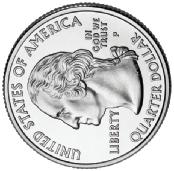


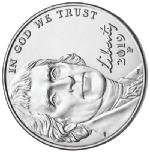


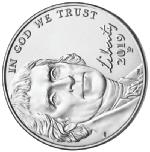

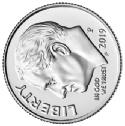
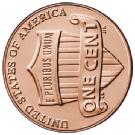



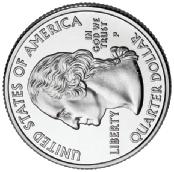
EUREKA MATH2 New York Next Gen 2 ▸ M1 ▸ Coins 249 © Great Minds PBC
Credits
Great Minds® has made every effort to obtain permission for the reprinting of all copyrighted material. If any owner of copyrighted material is not acknowledged herein, please contact Great Minds for proper acknowledgment in all future editions and reprints of this module.
All United States currency images Courtesy the United States Mint and the National Numismatic Collection, National Museum of American History.
Cover, Maurice Prendergast, 1858–1924, Ponte della Paglia, ca. 1898/reworked 1922. Oil on canvas. The Phillips Collection, Washington, DC, USA. Acquired 1922.; page 91, (composite image) Africa Studio/ Shutterstock.com, Olga Kovalenko/Shutterstock.com; All other images are the property of Great Minds. For a complete list of credits, visit http://eurmath.link/media-credits.
251 EUREKA MATH2 New York Next Gen 2 ▸ M1
© Great Minds PBC































